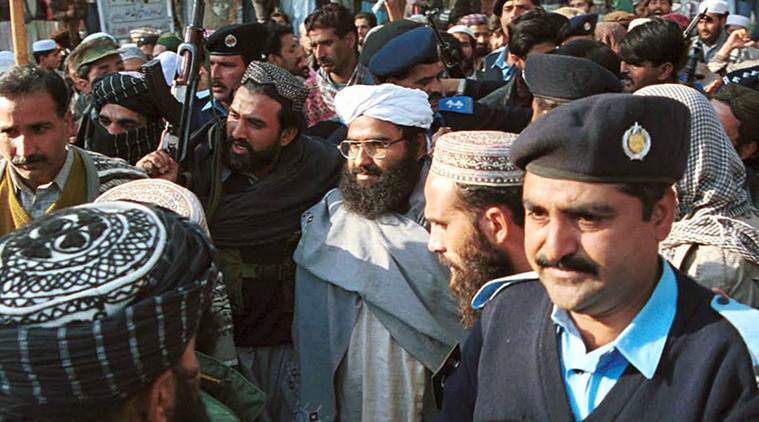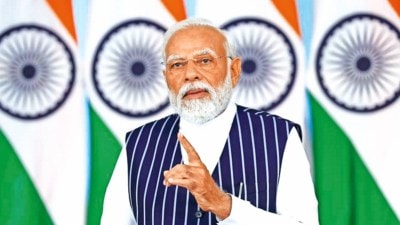While New Delhi has reason to be disappointed at Beijing’s fourth technical hold on the proposal to list Jaish-e-Mohammad chief Masood Azhar as a global terrorist at the UN, its diplomatic gains are not to be underestimated.
Top officials explained that few were expecting China to change its stand given how it views Pakistan as a “strategic weapon.”

While questions are being raised over the relevance of the Wuhan spirit in a diplomatic situation like this, the fact is this time Delhi was able to rally an unprecedented international consensus in favour of blacklisting Azhar.
For the first time since 2009, when India first tried to list Masood Azhar as a global terrorist under the UNSC Resolution 1267 sanctions committee, India got 13 co-sponsors for the proposal.
These include seven members of the UN Security Council — the three permanent members US, UK and France; and four non-permanent members Germany, Poland, Belgium and Equatorial Guinea.
Among UN members who are not in Security Council but who co-sponsored the proposal were six countries: Japan, Australia, Italy, Bangladesh, Maldives and Bhutan.
Also Read | What next after China’s block to designate Masood Azhar as global terrorist
Story continues below this ad
What is significant is that the Quad members — US, Japan and Australia — co-sponsored the proposal in a sign of strategic alignment on the issue of terrorism.
Sources told The Indian Express that this was “one of the key takeaways from this 2019 proposal” with this impressive number of co-sponsors.
This was incremental in nature since it was only in 2017 that India asked P-3 countries, US, UK and France to move the proposal. In 2016 and 2009, it was India which had moved the proposal.
“The idea is to the convey to the world that it is not just India which is asking for the listing but it’s the global community’s chorus. That chorus has got louder this time,” a source said.
Story continues below this ad
India’s Permanent Representative at the UN Syed Akbaruddin tweeted: “Big, Small & Many…1 big state holds up, again …1 small signal @UN against terror. Grateful to the many states — big & small — who in unprecedented numbers, joined as co-sponsors of the effort.”
The MEA acknowledged this: “We are grateful for the efforts of the Member States who moved the designation proposal and the unprecedented number of all other Security Council members as well as non-members who joined as co-sponsors.”
That’s not all. Last month, a week after the February 14 Pulwama attack, China had signed off on a UNSC statement that “condemned in the strongest terms” the terror attack and, in fact, named Pak-based Jaish-e-Mohammad for the “heinous and cowardly suicide bombing”.
Sources pointed out that this statement naming JeM is significant because China, at Pakistan’s behest, has thrice blocked the listing of JeM chief Masood Azhar as a “global terrorist” — in 2009, 2016 and 2017.
Story continues below this ad
While Delhi is disappointed, it has also been able to mount pressure on the Financial Action Task Force (FATF) which has asked Pakistan to take concrete action against terrorist financing or face a “blacklis”.
Sources said the need for Pakistan to take “concrete, credible, visible and verifiable action” remains top on Delhi’s agenda. China’s technical hold does not detract from that. The next challenge will be to keep Pakistan in the greylist, later this year, in May, when China will play a key role at the FATF.

 For the first time since 2009, when India first tried to list Masood Azhar as a global terrorist under the UNSC Resolution 1267 sanctions committee, India got 13 co-sponsors for the proposal. (AP)
For the first time since 2009, when India first tried to list Masood Azhar as a global terrorist under the UNSC Resolution 1267 sanctions committee, India got 13 co-sponsors for the proposal. (AP)






